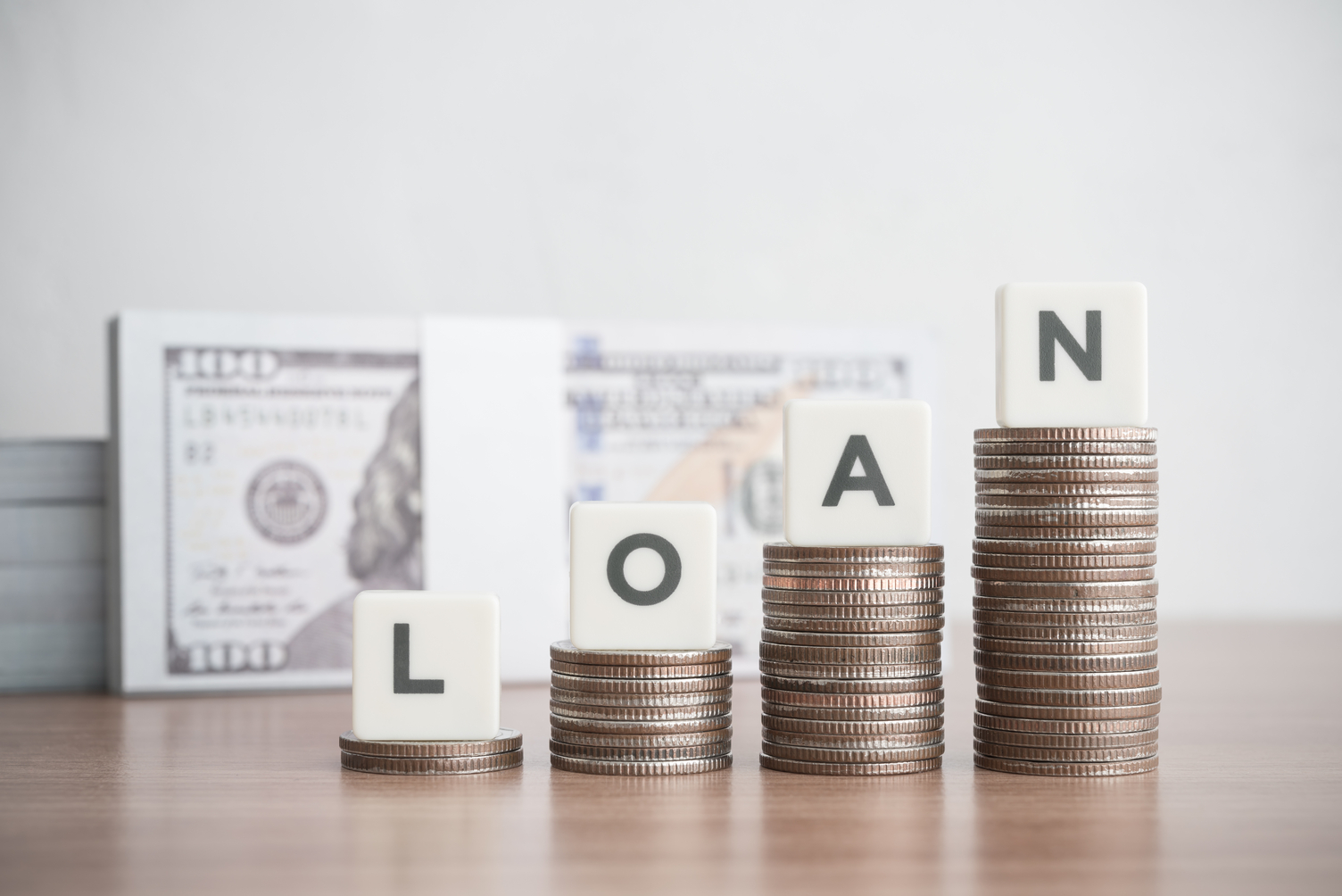You are now leaving the Bright website and entering a third-party website. Bright has no control over the content, products, or services offered, nor the security or privacy of information transmitted to others via their website. We recommend that you review the privacy policy of the site you are entering. Bright does not guarantee or endorse the products, information, or recommendations provided on any third-party website.
In the fast-paced rollercoaster of life, financial emergencies can ambush even the most prepared individuals, leaving them grappling for immediate cash to tackle unexpected expenses. Enter payday loans, the mighty warriors of quick cash solutions! According to recent data from the Consumer Financial Protection Bureau, these financial lifelines are utilized by an impressive 12 million Americans each year.
But beware, as every coin has two sides. While payday loans offer a swift financial respite, their magic comes with a cautionary twist. The National Payday Loan Association reveals that the average interest rates on these loans can soar to a jaw-dropping 400% APR! The siren call of rapid cash might plunge borrowers into a vicious cycle of debt if they aren't careful.
Hold on tight as we dive deep into the wild world of payday loans! In this exhilarating exploration, we'll uncover their inner workings, unveil the perks and perils, and unmask alternative options for those seeking financial stability amidst unforeseen challenges. So fasten your seatbelts, and let's navigate the thrilling landscape of payday loans together!
Read more: Best ways to start living debt-free in 2022
What is a Payday Loan?
A payday loan, also referred to as a cash advance or paycheck advance, is a short-term loan intended to bridge the gap between one's immediate financial needs and their next payday. These loans are typically for small amounts, ranging from $100 to $1,500, and are meant to be repaid within a short period, often on the borrower's next paycheck.
The main appeal of payday loans lies in their accessibility and quick approval process, making them an attractive option for individuals facing urgent financial obligations. These may include unexpected medical bills, car repairs, or utility expenses that cannot wait until the next payday. However, despite their convenience, payday loans can come with high-interest rates and fees, quickly adding up and becoming burdensome for borrowers.
Recent research by the Consumer Financial Protection Bureau highlights some concerning statistics about payday loans. Approximately 1 in 4 payday loans are reborrowed nine times or more, indicating that many borrowers find themselves in a cycle of dependency on these loans. Additionally, it takes borrowers an average of about five months to fully repay the loans, often resulting in significant finance charges amounting to an average of $520.
The repeated reliance on payday loans and the extended repayment periods can lead to a debt trap for borrowers, as the cumulative costs can become overwhelming and difficult to escape. Therefore, it is essential for individuals considering payday loans to carefully assess their financial situation and explore alternative options before committing to these high cost loans.[1]
Stop worrying about money and start saving smarter with Bright App. Take charge of your financial life. Sign up today!
How Do Payday Loans Work?
To obtain a payday loan, borrowers must provide proof of income, a bank account, and identification. The application process is usually straightforward and can be completed online or in person at a payday loan storefront. Lenders typically do not perform extensive credit checks, making these loans more accessible to individuals with poor credit scores.
The approval process for payday loans is often quick, with some lenders providing same-day approvals. On average, it takes around 24 to 48 hours for the loan to be approved and the funds to be disbursed to the borrower.
Upon approval, the borrower receives the loan amount as a cash deposit or a direct transfer to their bank account. The repayment term is typically short, ranging from two weeks to a month. In some cases, borrowers can extend the repayment period by paying additional fees, but this can lead to a cycle of debt that becomes challenging to escape.
When the loan becomes due, the lender will automatically withdraw the loan amount plus interest and fees from the borrower's bank account. It is crucial for borrowers to ensure they have sufficient funds in their accounts to avoid additional charges for insufficient funds.[2]
Discover a brighter financial future with Bright App's intuitive app. Download now and take the first step towards financial wellness.
Pros and Cons
While payday loans offer some advantages, it's essential to consider their drawbacks. Let's explore the advantages and then balance them with the disadvantages.
Advantages of Payday Loans
- Quick Access to Funds: As mentioned, payday loans provide fast access to cash, which can be crucial during emergencies or unexpected financial needs.
- No Credit Check: Individuals with poor credit histories may find it easier to qualify for a payday loan since lenders typically do not conduct extensive credit checks. This can be beneficial for those who have limited borrowing options due to bad credit.
- Simple Application Process: Applying for a payday loan is generally straightforward and requires minimal documentation. This simplicity can save time and effort compared to traditional loan applications.
- No Collateral Needed: Payday loans are unsecured, so borrowers do not risk losing their assets or property if they fail to repay the loan. This aspect makes payday loans less risky in comparison to secured loans.
Disadvantages of Payday Loans
- High-Interest Rates: Payday loans come with exorbitant interest rates, often ranging from 300% to 600% APR. This can lead to a cycle of debt for borrowers who struggle to repay the loan on time
- Short Repayment Terms: Payday loans usually have very short repayment periods, often due within a few weeks. This limited time frame can make it challenging for borrowers to pay back the loan, leading to rollovers or extensions that accrue additional fees
- The cycle of Debt: Due to the high-interest rates and short repayment terms, some borrowers may find themselves caught in a cycle of borrowing and repaying, leading to a debt trap
- Impact on Credit Score: While payday lenders typically do not report to credit bureaus, defaulting on a payday loan can still have adverse effects on your credit score if the lender sells the debt to a collection agency.[3]
If you find yourself in financial difficulty, seeking advice from a financial counselor or advisor can help you make informed decisions about your borrowing choices.
Read more: When should you use a credit counselor?

Where to Get a Payday Loan?
If you find yourself in need of a payday loan, several options are available for obtaining one. Here are the common places where you can access payday loans:
1. Payday Loan Stores
Physical storefronts that specialize in offering payday loans are available in many cities and towns. These stores allow borrowers to apply in person and receive cash on the spot if approved.
2. Online Lenders
Numerous online lenders offer payday loans through their websites. Applying online allows for a more convenient and private application process, and funds are often deposited directly into the borrower's bank account upon approval.
3. Credit Unions
Some credit unions provide payday loan alternatives that are more affordable and borrower-friendly than traditional payday lenders. They may offer small-dollar loans with lower interest rates and more extended repayment terms.
4. Online Loan Marketplaces
There are online platforms that connect borrowers with multiple lenders, providing access to various loan options, including payday loans. Borrowers can compare offers and choose the one that best suits their needs.
5. Alternative Financial Services
In some communities, alternative financial services, such as check-cashing outlets, may offer payday loans as well. However, it's essential to be cautious, as these services often come with higher fees and interest rates.
Remember that while payday loans can be readily available, it's crucial to approach them with caution and consider other alternatives with more favorable terms. Carefully review the terms and conditions of the loan, understand the interest rates, and ensure that you can meet the repayment obligations before proceeding with any payday loan.[1][4]
Don't let financial stress hold you back. Experience the power of Bright App's personalized financial management. Get started!
Alternatives to Payday Loans
In today's dynamic economic landscape, making informed and responsible financial decisions is paramount. Bright App understands the importance of securing your financial well-being and provides a comprehensive solution to help you navigate the challenges of unexpected expenses without resorting to high-risk payday loans.
At Bright App, we believe in empowering you with viable alternatives that promote financial stability and long-term success. Our platform is designed to offer personalized insights, actionable strategies, and practical resources that enable you to make sound financial choices. With a focus on responsible borrowing and effective money management, Bright App is your partner in achieving greater financial freedom.
Now, let's explore some alternatives that we recommend for handling unexpected expenses without the pitfalls of payday loans:
1) Personal Installment Loans: Unlike payday loans, personal installment loans come with longer repayment terms and lower interest rates, making them a more manageable option for borrowing larger amounts.
2) Credit Union Loans: Credit unions often offer small-dollar loans with more reasonable interest rates and flexible repayment terms compared to traditional payday lenders.
3) Borrowing from Family or Friends: If possible, consider borrowing from family or friends who may be willing to provide financial assistance without charging high-interest rates.
4) Emergency Fund: Building and maintaining an emergency fund can be a wise financial strategy to handle unforeseen expenses without resorting to high cost loans.
5) Negotiating with Creditors: In situations of financial hardship, reaching out to creditors to negotiate a payment plan or deferral may be a viable option.
6) Side Hustles or Part-Time Work: Supplementing your income with a side gig or part-time work can help you build a safety net for unexpected expenses.[5][6]
Ready to save, invest, and achieve your financial goals? Join Bright App's community of smart savers now!
Conclusion
Payday loans serve as a quick fix for immediate financial needs, but they come with substantial risks and high costs. While they provide convenient access to cash without extensive credit checks, their short repayment periods and exorbitant interest rates can lead to a cycle of debt for vulnerable borrowers.
To avoid falling into this trap, individuals should explore alternative options such as personal installment loans, credit union loans, or building emergency funds. Responsible financial planning and budgeting are essential to avoid the need for payday loans altogether.
By understanding the pros, cons, and available alternatives, individuals can make informed decisions to manage financial emergencies more responsibly and achieve greater financial stability in the long run.
Start your journey to financial freedom with Bright App today! Sign up now and take control of your finances.

References:
- https://www.investopedia.com/terms/p/payday-loans.asp
- https://paydayloaninfo.org/how-payday-loans-work/#:~:text=Payday%20loans%20are%20short%2Dterm,finance%20charge%20and%20receive%20cash.
- https://www.little-loans.com/payday-loans/advantages-and-disadvantages
- https://www.timesunion.com/marketplace/article/best-online-payday-loans-16746822.php
- https://www.nerdwallet.com/article/loans/personal-loans/alternatives-to-payday-loans-in-crisis
- https://www.incharge.org/debt-relief/payday-loan-alternatives/
FAQs
Q. Are payday loans the same as installment loans?
No, payday loans and installment loans are different. Payday loans are short-term loans due on the borrower's next payday, while installment loans have longer repayment periods and are paid back in regular installments over time.
Q. Can I get a payday loan with bad credit?
Yes, payday lenders often provide loans to individuals with poor credit scores since they focus more on the borrower's income and ability to repay the loan on their next payday.
Q. What is the typical cost of a payday loan?
The cost of a payday loan can vary depending on the lender and the borrower's location. However, the average APR (annual percentage rate) for payday loans can be extremely high, ranging from 300% to 600% or even higher.
Q. Can I roll over or extend a payday loan?
Some payday lenders allow borrowers to extend or "rollover" their loans by paying an additional fee. However, this can lead to a cycle of debt and should be avoided whenever possible due to the accumulating costs.
Q. Are payday loans banned in any state?
Yes, some U.S. states have laws that either heavily regulate or outright ban payday lending to protect consumers from predatory practices and high-interest rates. It's essential to check the laws in your state before considering a payday loan.



